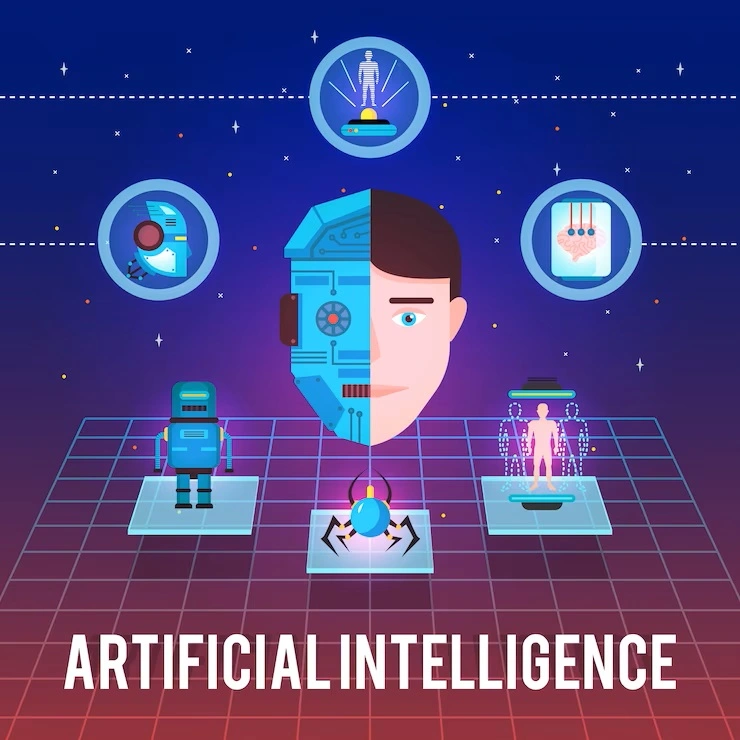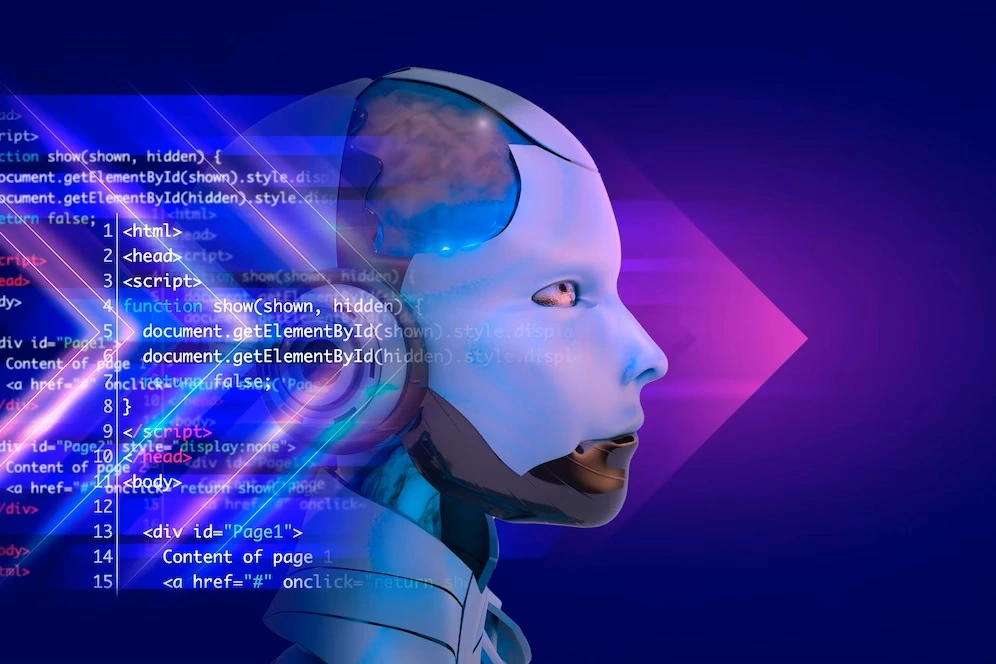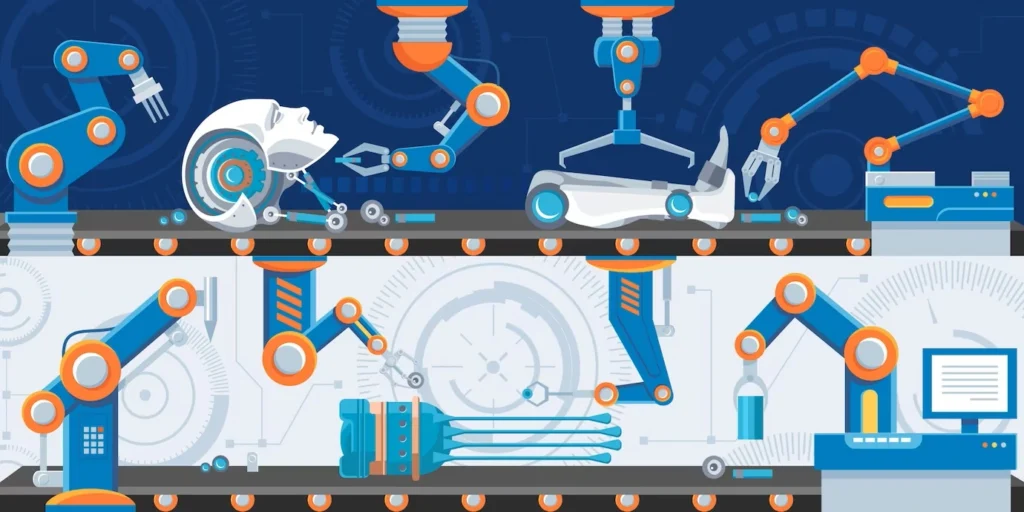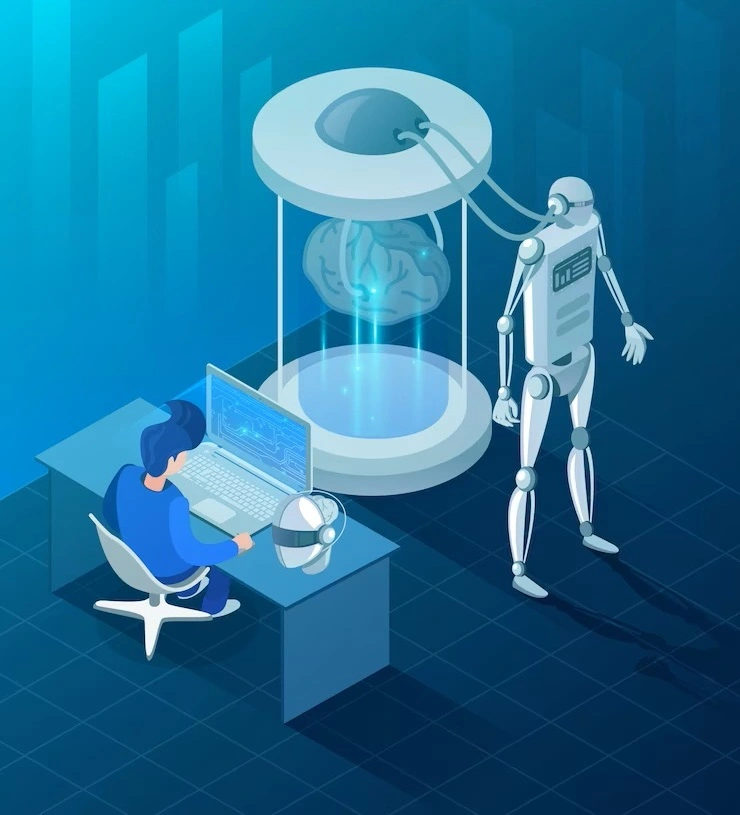Artificial Intelligence, or AI for short, is rapidly changing the world we live in. From self-driving cars to intelligent virtual assistants, AI has become an integral part of our daily lives. However, as this technology continues to advance at an un precedented pace, many people are wondering about its impact on humanity’s future. Will it lead us towards a utopian society where machines do all the work? Or will it push us towards a dystopian future where robots take over and humans are left obsolete?
In this blog post, we’ll explore the history of AI, discuss its different types and examine both the positive and negative effects it can have on our lives. Join me as we dive in to the fascinating world of AI and what it means for our collective future!
What is AI?
AI for short, is a cutting-edge technology that enables machines to learn and perform tasks that traditionally require human intelligence. Essentially, it involves programming computers to think and reason like humans do.

At its core, AI relies on algorithms and statistical models that can analyze vast amounts of data to recognize patterns and make predictions. These algorithms allow machines to learn from experience, so they can become smarter over time without explicit instructions from a programmer.
AI today includes everything from simple chatbots designed to help you book appointments online to complex deep learning neural networks used in self-driving cars. With this kind of technology at our disposal, the potential applications are virtually endless – from improving health care out comes through personalized treatments to revolutionizing transportation systems by reducing traffic congestion.
As we continue down the path towards an increasingly automated world powered by AI systems, understanding what this field encompasses will be crucial for staying ahead of the curve.
The history
The history of AI dates back to ancient civilizations, where myths and stories featured machines with human-like intelligence. However, the modern concept of it emerged in the 1950s when computer scientists began developing algorithms and models that could simulate intelligent behavior.

The Dart mouth Conference held in 1956 is considered a significant mile stone for AI as it brought together leading re searchers to discuss their work on machine learning and natural language processing. In the following years, AI saw rapid development as new techniques such as rule-based systems and decision trees were introduced.
In the 1980s, there was a decline in re search funding for AI due to limited success and un realistic expectations. However, interest resurged in the late 1990s with advancements like neural networks and genetic algorithms.
Today, we see wide spread use of AI applications from virtual assistants like Siri to self-driving cars. The field continues to evolve rapidly thanks to deep learning architectures that are capable of processing vast amounts of data.
While there have been many set backs along the way, the history of AI has shown us that perseverance can lead to ground breaking innovations. With ongoing research into fields like quantum computing and reinforcement learning, we can anticipate even more exciting developments in the future.
The different types of AI
There are different types of AI that exist today, each with varying levels of complexity and capabilities. The following are the most common types of AI:

- Reactive Machines – These machines operate based on pre-defined rules without having any memory or past experiences.
- Limited Memory – These machines can learn from historical data to make better decisions in the future.
- Theory of Mind – This type of AI is designed to understand human emotions, beliefs and thoughts in order to interact effectively with humans.
- Self-Aware – Currently only a theoretical concept, this advanced form of AI would have consciousness and be able to think for it self.
The level at which an AI system functions depends on its design and purpose as well as the quality and quantity of data used during training. Each type has its own unique features but all have the potential to impact our society significantly depending on how they are developed and utilized.
The positive and negative impact of AI on humanity
AI is a technology that has already started to change the way we live and work. It has the potential to bring many positive changes to humanity, such as increased efficiency, improved health care, and enhanced safety. However, it also poses some negative impacts on society.
One of the most significant benefits of AI is its ability to increase efficiency in various industries by automating repetitive tasks, reducing human error and providing faster results. This can lead to cost reductions for businesses and more time for people to focus on creative or problem-solving tasks.
AI also has promising applications in health care, particularly in diagnoses and personalized treatments. Machine learning algorithms can analyze vast amounts of medical data quickly and accurately than humans ever could before.
On the other hand, AI’s rapid development may have negative consequences like job dis placement caused by automation leading to un employment rates sky rocketing across all sectors of employment. Additionally, there are concerns about privacy regarding sensitive information collected through AI systems without consent from individuals.
While AI offers numerous advantages with technological advancements; we should be aware of potential draw backs too that come with them.
How to prepare for the future with AI
As AI continues to evolve, it’s important to consider how we can prepare for its impact on society. Here are some ways you can get ready for the future with AI.

- Firstly, keep up-to-date with technological advancements by reading books and attending conferences on the subject. It’s vital that we understand the potential of AI so that we can make informed decisions about its use in our lives.
- Secondly, focus on developing skills that complement AI rather than competing against it. For example, creative thinking and emotional intelligence are areas where humans have an advantage over machines.
- Thirdly, be mindful of your privacy when using technology. As AI becomes more integrated into our daily lives, there will be a greater need to protect personal data from exploitation or misuse by companies or individuals.
Encourage ethical practices around AI development and usage. We must ensure that these technologies benefit every one in society and do not lead to further inequality or dis crimination.
By following these steps and keeping a positive attitude towards technological progress, we can work towards shaping a future where humans coexist harmoniously with intelligent machines.
Conclusion
AI has already started making a significant impact on the world and its influence is only going to increase in the coming years. While there are concerns about job displacement and loss of privacy, it’s also un deniable that AI has the potential to revolutionize health care, transportation, education and many other industries for the better.
To prepare for the future with AI, we need to focus on developing new skills that can’t be automated such as creativity, problem-solving abilities and emotional intelligence. It’s important to have regulations in place to ensure ethical use of AI technology and protect individuals from any negative consequences.
Ultimately, it will require collaboration between governments, businesses and individuals alike to ensure that we maximize the benefits of this powerful technology while minimizing its risks. By responsibly embracing AI innovation we have a chance to shape a brighter future for humanity in which every one can benefit from increased efficiency and productivity.


